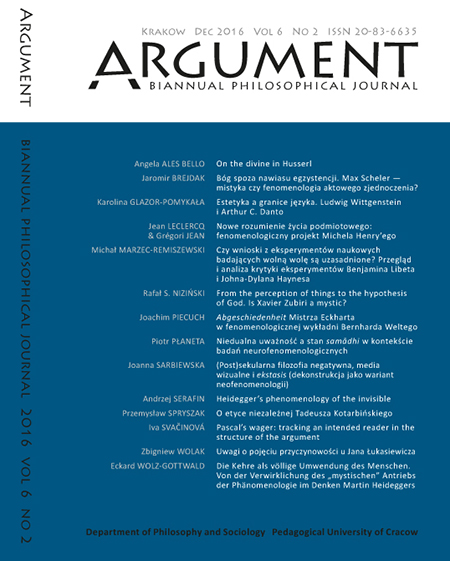Abgeschiedenheit Mistrza Eckharta w fenomenologicznej wykładni Bernharda Weltego
Słowa kluczowe:
Meister Eckhart, German philosophy, metaphysics, religious experience, Abgeschiedenheit (“isolation”)Abstrakt
Abgeschiedenheit Meister Eckhart in the phenomenological interpretation of Bernhard Welte: The basis of analyzes carried out in the article is the work of Bernhard Welte: Meister Eckhart. Gedanken zu seinen Gedanken. The central subject of research is the idea Abgeschiedenheit (“isolation”). Following the interpretation of Welte it has been considerated a phenomeno‐ logical description on two ways. From the practical experience, as a modus vivendi a religious man, and from the theoretical, as speculative thought. Theoretical considerations consist of analysis of the concept of truth and goodness, which Eckhart identifies with the idea of God. Welte shows that these concepts of medieval thinker at the starting point considerations are still sink in the schemes of metaphysical thinking, but in the next stages of its argumentation he overcome metaphysical discourse. The purpose of the article, guided by the suggestion Weltes interpretation, is to show ways of reaching the source forms of religious experience. At the same time the text raised the issue of problematic use formulas of mystical union and noticed parallels have been taking place between the method of phenomenological reduction and the idea of Abgeschiedenheit.


